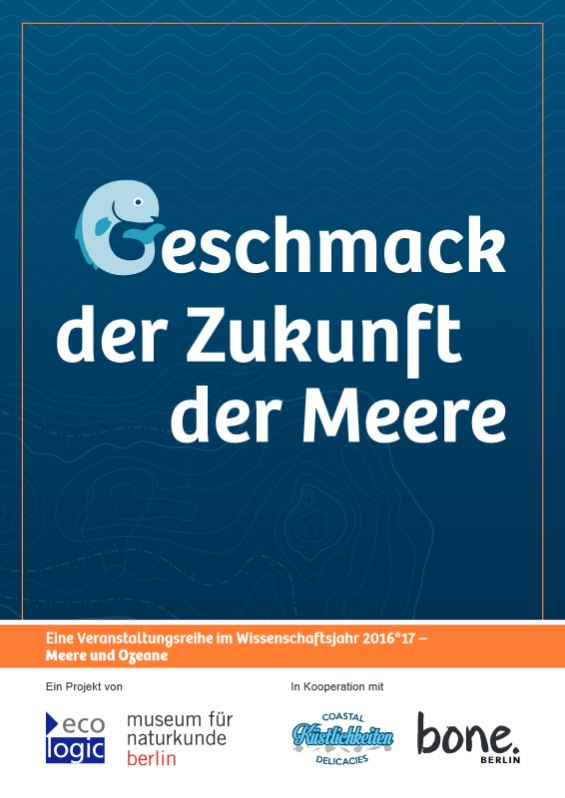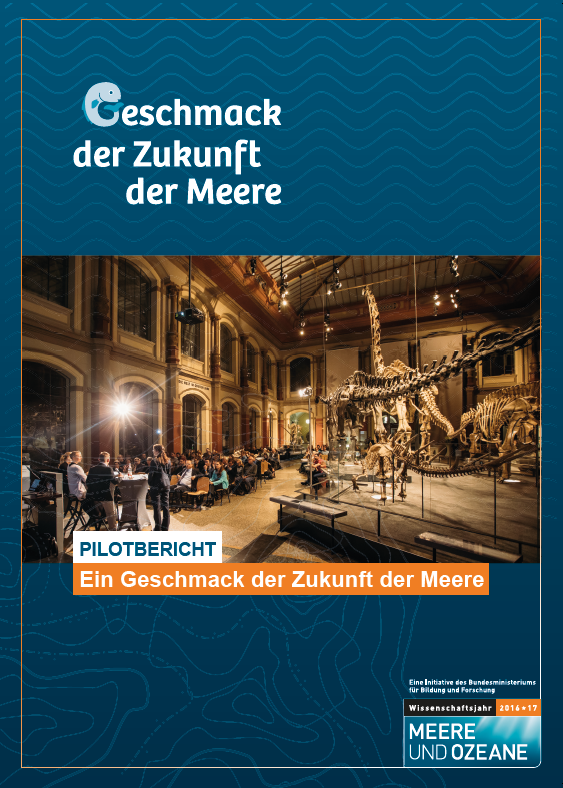Science Sips on Citizen Science and Plastic in the Science Year 2016*17 – Seas and Oceans
- Event
- Date
-
- Location
- Berlin, Germany
Ever tried oysters from a natural heritage site, or discussed plastics pollution of the oceans while sipping seaweed cocktails? Participants at the second Science Sips event got to experience exactly that on 28 April 2017 while sitting across the impressive dinosaur fossils exhibited at the Berlin Museum for Natural History.
It's hard to imagine a life without plastic. But plastic waste poses a serious threat to ecosystems, and especially oceans and seas. Oceans are plagued by plastic garbage vortexes the size of whole continents. An increasing number of marine animals perish because they mistake plastic waste for food or entangle themselves in old nets and plastic containers. Beyond this, there are still many knowledge gaps about oceans, which present a challenge for their sustainable use. There a many possibilities for citizens to engage in conservation and research of the seas. The project "Taste of the Future of the Seas" is part of the Science Year 2016*17 – Seas and Oceans, funded by the German Federal Ministry for Education and Research, and addresses the challenges and opportunities for sustainable use of sustainable plastics use and citizen science.
At the second of four Science Sips events, talks touched on how citizens who don't live on the coast can be involved in research and protection of the oceans. Three experts gave short, energetic presentations on the topics plastics in the ocean and citizen science:
R. Andreas Kraemer, founder and director emieritus of Ecologic Institute and board member of Fundação Oceano Azul, explained where plastics in the ocean come from, what they do to the marine biodiversity and what one can do to prevent this.
Dr. Rainer Kiko, research director of the citizen science projekt PlanktonID GEOMAR Helmoltz-Centre for Ocean Research Kiel, showed how participating in a citizen science project can enable anyone to take part in a scientific processes.
Prof. Dr. Throsten Reusch, director of marine ecology at GEOMAR Helmoltz-Centre for Ocean Research Kiel, project lead of the citizen science projekt #fischdetektive, presented how we as consumers can help investigate and prevent the sale of fish from overfished stocks.
The evening was moderated by Stephanie Wunder, senior fellow and coordinator of the food systems branch at Ecologic Institute .
An interactive and engaging discussion round followed, where participants got to ask their questions to the three experts, for example: options to stop plastic pollution in Europe and developing countries, and the role of citizen science in marine and fisheries policy.
After the discussion, participants got to enjoy street food and drinks made from sustainable sea-food, provided by the culinary partners Küstlichkeiten and Bone.Berlin, and got to discuss further with the three experts in an informal setting at "Ask a Scientist" tables.
In addition, participants could engage with the "FutureFish" knowledge grill that offered informative postcards on sustainable seafood consumption, as well as dress up in a captain's hats and fishing nets for a picture at the selfie-station.




